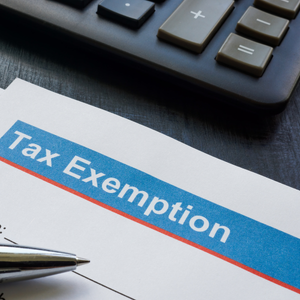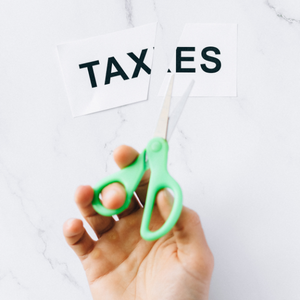
Understanding Washington’s capital gains tax rules is essential to navigating the process after selling a home. Washington has no personal income tax, but federal implications apply. Home sellers must understand capital gains and federal exemptions. This guide simplifies taxes and gives homeowners tips to reduce their tax liability. Understanding the Washington capital gains tax is essential for financial planning and profit optimization, whether you’re a first-time seller or an experienced investor. For personalized guidance and a smoother selling experience, Northwest Real Estate Solutions can help you navigate both state and federal tax requirements effectively.
Brief Overview
Understanding Washington’s capital gains tax as it relates to selling a home entails an understanding of state laws and exemptions. No personal income tax may be assessed in Washington however surplus gains from capital (on certain profits) are taxable, and there are exemptions for primary residences under certain conditions. Sellers ought to know the difference between the state’s excise tax (which is levied on the selling price) and the federal capital gains tax (which is imposed on the profit made). Washington and federal tax laws may be complex for homeowners trying to sell a home; tax professionals may provide assistance to homeowners selling a home in order to maximize their profits. If you are trying to sell a home and do not mind the tax consequences, cash home buyers in Washington and the surrounding areas may be a good option to streamline the tax burden.
Key Highlights
- Washington offers unique state and local capital gains tax exemptions and deductions.
- Home sellers differentiate the state excise tax and the capital gains tax.
- Federal exclusions reduce capital gains tax liabilities after home sales.
- Penalty-defensible deductions justify home transactions and audits.
- Professional guidance maximizes tax strategies and compliance.
Understanding Washington Capital Gains Tax
Washington State’s capital gains tax can be confusing, especially when selling a home. Washington’s capital gains tax may differ from others because it doesn’t have a personal income tax. Understanding capital gains and Washington’s unique approach helps you navigate these complexities. Discover how these rules affect your finances and Washington’s unique approach to capital gains, particularly real estate sales and capital gains tax.
What Qualifies as a Capital Gain?
Washington homeowners must understand capital gains to calculate tax obligations after selling their home. You make a capital gain when you sell an asset like a house for more than you paid. Your home’s adjusted basis (the original purchase price plus improvements and certain selling expenses) is subtracted from the final selling price to calculate this gain. Remodeling or adding energy-efficient features can raise the adjusted basis and lower your taxable gain. Understanding this calculation helps you determine your tax liability.

Both short-term and long-term capital gains exist. If you owned the property for more than a year before selling, the profit is a long-term capital gain, which is taxed less. Washington has no personal income tax, but it taxes capital gains on high-value transactions, and federal taxes may apply. How long you’ve owned your property and whether your sale falls within taxable thresholds can help you plan and reduce your tax burden.
Correctly calculating and reporting capital gains requires accurate recordkeeping. Detailed documentation of your property’s purchase, improvement, and sale costs ensures accurate calculations and IRS audit proof. Understanding capital gains and their rules helps homeowners make better financial decisions. This information reduces unexpected tax bills and boosts real estate investment returns.
Washington’s Capital Gains Approach
Because Washington State does not tax personal income, its capital gains tax is unique. However, homeowners still pay property sales taxes. Recent legislation has imposed a capital gains tax on high-value transactions, including properties sold. Income from this tax on extraordinary gains is used to fund public services like education. Understanding whether your property sale qualifies for this tax before closing is crucial. The rate applies only to certain profit levels.
Washington’s capital gains tax has several exemptions and deductions to reduce or eliminate liability. Sellers must meet state requirements, but most personal residences may be exempt. Certain property sales or reinvestments may be exempt. Since Washington’s capital gains tax law is new and evolving, consult updated local tax codes or a certified tax professional. Knowing these details helps you legally reduce your tax exposure while complying with state laws.
Understanding Washington’s capital gains tax structure helps homeowners plan and strategize finances. To maximize post-sale profits, time your sale, use exemptions, and document thoroughly. Washington’s tax system-savvy accountants and financial advisers can offer tailored advice. Understand and manage your capital gains obligations to protect your profits and improve your long-term real estate planning.
Do House Sales Cause Taxes?
Washington State homeowners selling their homes may face capital gains tax issues. Sellers in Washington must navigate capital gains laws despite no personal income tax. Exemptions and the state’s excise tax and federal capital gains tax must be considered to determine if your home sale will trigger taxes. These details can help you predict your tax obligations and find ways to reduce them when selling a Washington property. To streamline the process and ensure a smooth sale, you can work with We Buy Houses in Richland, WA, and neighboring cities in Washington, offering quick cash options that help you sell your property without unnecessary delays or complications.
Home Sale Exemptions and Conditions
Selling a home in Washington State requires checking for home sale exemptions to reduce taxes. The federal primary residence capital gains exclusion is the most notable. Homeowners who have lived in their property for at least two of the last five years can deduct up to $250,000 of profit from taxes if filing alone or up to $500,000 if married filing jointly. This exclusion can reduce or eliminate capital gains taxes. To qualify for this benefit, you must verify your ownership and residency with the IRS.

The federal government offers generous exemptions, but Washington State’s Real Estate Excise Tax (REET) does not. The total sale price of the property determines REET, which must be paid at closing. Capital gains tax is based on profit. You must pay the state’s excise tax even if you qualify for a federal exemption. Knowing how these tax systems work helps you plan for both and avoid surprises during your home sale.
By understanding federal and state requirements, you can improve financial efficiency and compliance, as well as gain clearer insight into the average cost to sell a house. To prove exemption eligibility, keep detailed records of your home’s purchase, improvements, and occupancy. A tax professional can also tailor strategies to your situation, potentially uncovering additional deductions or timing advantages. With proper planning and expert guidance, you can better manage the average cost to sell a house, reduce your tax burden, and maximize your home sale proceeds.
Differentiating Excise Tax from Capital Gains
Selling homeowners must understand Washington’s excise tax and the federal capital gains tax. State-imposed Real Estate Excise Tax (REET) is based on the property’s total selling price, not profit. Salespeople who think taxes only apply to gains are often surprised. Regardless of profit, Washington’s excise tax is a percentage of the sale price and must be paid at closing. In contrast, capital gains tax only applies to the profit, which is the home’s adjusted basis (purchase price plus improvements) minus the sale price.
A state-level excise tax is paid separately from the federal capital gains tax, which is reported to the IRS. At closing, the title or escrow company pays the excise tax, ensuring compliance. Salespeople must realize that these two taxes serve different purposes: a state transaction tax and a federal income tax. Misinterpreting these differences can cause filing errors or post-sale financial obligations.
You can better plan and budget for your home sale by understanding each tax. Also, it helps you use federal exemptions and deductions to reduce your capital gains liability. Working with a tax or real estate attorney can clarify and help you prepare state and federal filings. When selling, distinguishing excise and capital gains taxes early can help you manage your finances and avoid surprises at closing.
Strategies to Minimize Tax Liability
Understanding strategies and deductions helps Washington homeowners reduce tax liability when selling a home. By using exemptions and legal maneuvers, you can lower capital gains taxes. From primary residence exclusions to strategic timing and reinvestment plans, knowing your options is crucial. These strategies will help you keep profits and comply with federal and Washington state tax laws. Consulting a tax expert can provide personalized guidance as you navigate the tax system.
How to Avoid Capital Gains Tax on Home Sale
Avoiding capital gains tax when selling your Washington home requires planning and knowledge of exemptions. This tax is best avoided by using the federal primary residence exclusion. The homeowner can exclude up to $250,000 of capital gains if filing alone or $500,000 if married filing jointly. Two of the past five years must be spent owning and living in the property before the sale. Proving ownership and residency requires thorough documentation. Timing the sale strategically can maximize this benefit, especially if you are close to two years of residency.

When capital gains exceed the exclusion limit, there are other tax strategies. By offsetting gains with investment losses in the same tax year, tax-loss harvesting can lower your taxable amount. No property sales in Washington are exempt from the Real Estate Excise Tax (REET), which is separate from the federal capital gains tax. Avoid unexpected liabilities and penalties by meeting federal exemption requirements and reporting REET payments.
Use a 1031 exchange to reinvest the proceeds from your sale in a similar property to defer capital gains tax. It helps you maintain liquidity and build equity by delaying capital gains taxes until you sell the new property. A Washington-savvy tax professional is essential because tax regulations change and involve detailed criteria. Expert advice helps you comply and minimize or defer capital gains taxes on your home sale.
Legal Deductions and Exemptions
Washington home sellers can reduce their tax burden by understanding legal deductions and exemptions. Besides federal exclusions for primary residences, deductible property sale expenses can lower your taxable capital gain. Home improvements like roof replacements, energy-efficient upgrades, and major remodeling can boost property value. A higher basis reduces capital gains when selling, lowering taxes. To verify tax deductions, keep detailed records of these improvements.
While Washington State may not offer many capital gains deductions, staying abreast of changing tax laws is crucial. Since Washington’s capital gains tax is new, future legislation may affect exemptions or deductions. Residential homeowners should also investigate state tax credits for energy-efficient installations and environmentally friendly home improvements to lower their tax burden. Being proactive about such opportunities helps you maximize tax relief.
A knowledgeable accountant or tax professional familiar with Washington’s tax system can help find deductions and credits. These professionals can help you comply with regulations and maximize savings. Guidance and documentation simplify the tax process and maximize property sale profits. Using legal deductions and exemptions effectively can
Filing and Paying the Necessary Taxes
Washington house sellers must understand more than the capital gains tax. It involves accurately filing a tax return and paying all taxes on time. Sellers must use exemptions and deductions to offset state excise taxes and federal capital gains taxes. Filing and paying taxes on time is essential to protecting your finances and complying with state and federal laws.
| A refund/credit. Tax Type | Action Required | Documentation Needed | Exemptions/Deductions | Professional Assistance |
|---|---|---|---|---|
| Federal Capital Gains Tax | Report sales on IRS Form 8949 and Schedule D | Closing statement, Form 1099-S | Exclusion of up to $250,000/$500,000 on primary residence | CPA or Tax Advisor |
| Washington State Excise Tax | Pay real estate excise tax at closing | Excise Tax Affidavit | None; mandatory state tax | Real Estate Agent, Title Company |
| Income Reporting | Include net proceeds on the federal tax return | Proof of cost basis, improvement bills | Adjustments for selling costs | Tax Preparer |
| Local Property Tax | Ensure prorated payment at sale closure | Property tax statement | Proration can lead to a refund/credit | Escrow Officer |
This table simplifies Washington home sale tax management for compliant and strategic planning.
Reporting and Paying Taxes on Sales
Selling a home in Washington requires federal and state tax reporting and payment. Beginning with your home’s sale price and adjusted basis (original purchase price plus allowable improvements), calculate your capital gains tax. While Washington State does not have a personal income tax, Form 1040 and Schedules D and A for gains and deductions must be filed to report federal capital gains tax. Identifying gains accurately helps avoid IRS issues and prevents reporting errors.
A Real Estate Excise Tax (REET) on the property’s sale price, not profit, is added to federal obligations in Washington. Title and escrow companies manage this tax during closing. Checking REET before closing the sale is crucial to avoid penalties and interest. Purchase agreements, improvement receipts, and closing statements should be kept by homeowners to support tax calculations and primary residence exemptions.
Residential property owners can use federal exclusions like the primary residence exclusion to reduce their tax burdens. Consulting with tax professionals or timing the sale in a good tax year can improve your financial outcome. Manage your post-sale taxes efficiently and confidently with an experienced tax adviser or real estate attorney who ensures accurate reporting, full compliance with Washington excise tax laws, and protection against unexpected liabilities.
Consider these steps to simplify tax management after selling your Washington home:
- Keep the final settlement statement and buyer communications from your home sale.
- Discuss home sale tax liabilities and benefits with a tax professional.
- Determine if you qualify for the capital gains tax exclusion and gather all necessary evidence.
- To avoid penalties, file state and federal tax forms for the sale by the deadline.
- Update your IRS and other contact information to receive tax updates.
Following these tips can simplify tax filing and financial management.
In conclusion, Washington homeowners must understand the capital gains tax after selling a house to maximize their financial returns. Sellers can reduce tax liability by knowing state regulations, exemptions, and deductible expenses. Tax and real estate experts can also offer customized advice for specific financial situations. Maintaining tax law awareness as the housing market changes is essential for making informed real estate decisions and complying with Washington’s tax laws. For personalized guidance or expert assistance, contact Northwest Real Estate Solutions today.
Worried about capital gains tax after selling your house? Northwest Real Estate Solutions offers fair cash deals and handles everything for a smooth, stress-free sale. Call (541) 399-9535 today!
FAQs
What is Washington State’s approach to capital gains tax on home sales?
Without a personal income tax, Washington State taxes capital gains on certain real estate sales profits. This tax targets extraordinary gains and has a specific rate, but exemptions may reduce the amount owed.
How do federal exemptions reduce home sellers’ capital gains tax?
The federal government excludes many primary residence sales. Married couples filing jointly can exclude $500,000. Single taxpayers can exclude $250,000. At least two of the past five years must have been spent in the home to qualify.
What differentiates the state excise tax from the federal capital gains tax?
Washington’s excise tax is based on the closing price, not profit. Federal capital gains tax is calculated as the difference between the selling and purchasing prices, including improvements and costs.
Why should Washington homeowners use tax professionals when selling?
Tax professionals assess federal and state tax liabilities and help with exemptions and deductions. Their expertise optimizes real estate transaction financial outcomes and ensures tax compliance.
How can Washington home sellers benefit from records?
Documenting home transactions, improvements, and expenses is essential for tax deductions and exclusions. These records help calculate capital gains and aid audits.
Helpful Washington Blog Articles
- How to Sell a House in Probate in Washington
- Selling a House to a Family Member in Washington
- Capital Gains Tax After Selling a House in Washington
- Selling A House with Delinquent Property Taxes in Washington
- Do All Heirs Have to Agree to Sell Property in Washington
- How to Sell Distressed Property in Washington
- Do I Need Lawyer to Sell My House in Washington?

